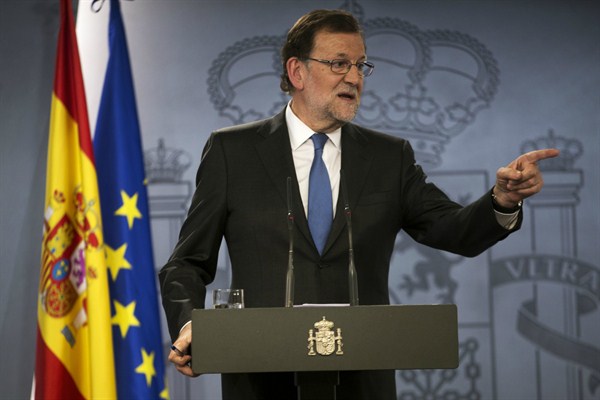In late April, Spain’s King Felipe announced that new elections would be held June 26, six months after Spaniards went to the polls. No party won a majority in December’s elections, however, and months of negotiations failed to produce a viable ruling coalition.
The incumbent, conservative People’s Party (PP), led by Prime Minister Mariano Rajoy, won the most votes—nearly 29 percent—but lost its governing majority and over one-third of its deputies in the 350-seat Congress of Deputies. The social-democratic Spanish Socialist Workers’ Party (PSOE) took 22 percent of the vote, followed by the upstart left-wing Podemos with 21 percent. Another newly formed party, the right-leaning Ciudadanos, won 14 percent of the vote. No party was willing to make the necessary concessions in subsequent negotiations to form a coalition government.
The closest Spain came to a government since December was a proposal by the PSOE for a broad coalition with Podemos and Ciudadanos, but Podemos refused to join a coalition that included Ciudadanos. In an internal vote in April, 85 percent of Podemos party members rejected the deal, saying instead that they preferred a coalition with the Socialists and several smaller nationalist parties.

